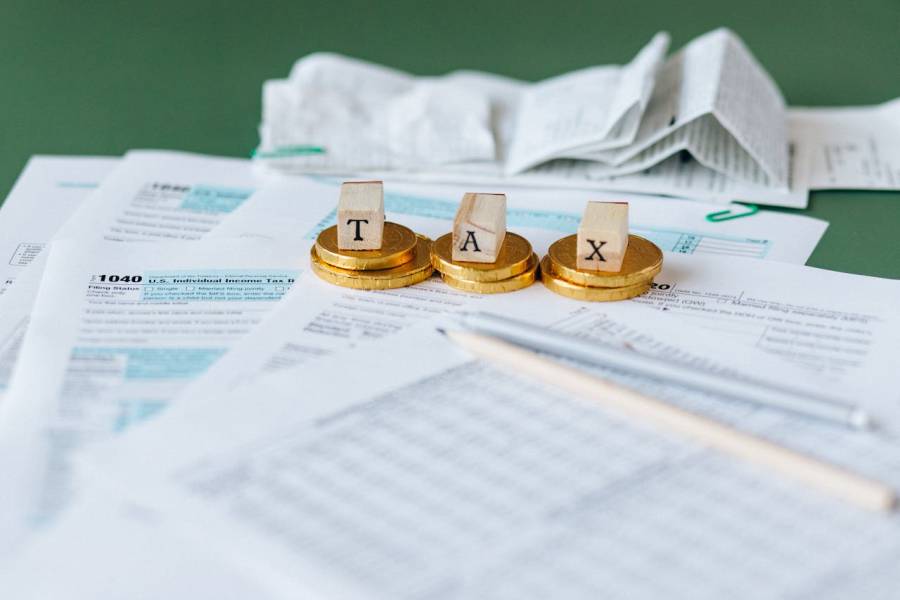So you’ve taken the plunge and bought your first rental property. Congrats! That’s a big move—and if you play it right, it could be the first step toward long-term wealth.
But let’s talk about something way less exciting (and way more important): taxes.
Real estate offers some solid tax perks, but if you don’t know what you’re doing, you could leave a ton of money on the table—or worse, land in hot water with the IRS. This guide breaks down the smartest tax moves you should know and the rookie mistakes to steer clear of.
Let’s make sure you keep more of what you earn.

Start Smart: Tax Moves That Actually Work
Choose the Right Setup from the Start
First off, how you own your property matters. A lot.
Some first-time investors buy property in their own name. That works—but it’s not ideal. Setting up an LLC (Limited Liability Company) can give you some protection and make taxes cleaner down the road.
It’s not just about taxes, though. Holding property in an LLC can help keep your personal assets safe if something goes sideways. Think of it as setting up the right foundation before you start stacking bricks.
Lean Into Depreciation (It’s Legal Magic)
Here’s one of real estate’s best-kept secrets: depreciation. Basically, the IRS lets you pretend your property is losing value each year, even though it’s probably going up in the real world.
That “loss” lowers your taxable income, which can seriously shrink your tax bill.
The standard timeline is 27.5 years for residential property. But here’s where it gets even better…
Speed Things Up With Cost Segregation
Normally, you depreciate the entire building over a couple of decades. But what if you could break out parts of the property—like appliances, flooring, or even landscaping—and write those off faster?
That’s what cost segregation does. It front-loads your deductions, which means more savings sooner.
Many investors are drawn to DIY Cost Seg to save money and boost cash flow without hiring a specialist. But while it’s tempting to go the DIY route, the process is technical and easy to get wrong. Missteps can lead to IRS scrutiny, so it’s important to understand the risks and know when to bring in expert help.
Don’t Miss the Everyday Deductions
Real estate comes with all kinds of expenses—and most of them are tax-deductible.
We’re talking mortgage interest, property taxes, insurance, repairs, maintenance, legal fees, and even travel expenses if you’re checking in on your property.
Do you have a home office where you manage the rental? That might be deductible, too. The trick is keeping solid records and not assuming your CPA (or TurboTax) will just figure it out later.
Know If You Can Qualify as a Real Estate Pro
This one’s a little more advanced but worth knowing about.
If real estate becomes your main hustle—and you spend enough hours on it—you might qualify as a real estate professional for tax purposes. That opens the door to using property losses to offset your other income.
There are some strict requirements, though (think 750+ hours per year, plus material participation), so it’s not for everyone. But if you’re serious about growing your portfolio, keep this on your radar.
Rookie Mistakes That’ll Cost You
Don’t Mix Business and Personal
It’s super tempting to just swipe your personal card for a quick property expense, but mixing funds is a nightmare when tax season rolls around.
Open a separate bank account for your property. Use it for all income and expenses. Simple rule: keep your property business separate from your personal life.
Your future self (and your accountant) will thank you.
Don’t Skip Help Entirely
Yes, there’s a ton of info online. And yes, you can do a lot yourself.
But trying to go 100% solo on your taxes—especially as things get more complex—is risky. A good CPA can catch things you’ll miss, save you from big mistakes, and often pay for themselves in savings.
DIY is great… until it’s not.
Plan for Capital Gains (Before You Sell)
When you sell your property, the IRS wants a piece of your profits. That’s called capital gains tax—and it can be hefty if you’re not ready.
Sell after holding for less than a year? That’s short-term gains, and it’s taxed like regular income (read: high).
Hold it for a year or more? You’ll usually pay less, thanks to long-term capital gains rates.
So, if you’re flipping quickly, make sure you’re running the numbers with those taxes in mind.
Watch Out for the Passive Loss Trap
Real estate income is usually considered “passive,” and the IRS has rules on how much passive loss you can use to offset other income.
Translation: even if your rental shows a paper loss, you might not be able to use that loss right away—especially if your income is too high.
Sometimes, those losses just get “suspended” until you sell. So don’t rely on them to bail you out this year.
Don’t Forget Local Tax Rules
States and cities have their own tax quirks.
Some charge extra taxes on rental income. Others have property-specific fees or inspections that come with write-offs you shouldn’t miss.
Make sure you understand the tax rules where your property is located—not just where you live.
Wrap-Up: Play the Long Game, Save More Money
Getting your tax game right from the start can make a massive difference in your bottom line. You don’t need to be an expert—but you do need to be aware.
Start with the basics: set up your structure, track your expenses, look into cost segregation, and know when to call in a pro.
Real estate is a long game. Play smart early, and your future self could be looking at a pile of tax-free equity with a grin on your face.
Want to go deeper on any of these strategies? Drop a comment or shoot me a question—happy to help break it down even more.

Peyman Khosravani is a global blockchain and digital transformation expert with a passion for marketing, futuristic ideas, analytics insights, startup businesses, and effective communications. He has extensive experience in blockchain and DeFi projects and is committed to using technology to bring justice and fairness to society and promote freedom. Peyman has worked with international organizations to improve digital transformation strategies and data-gathering strategies that help identify customer touchpoints and sources of data that tell the story of what is happening. With his expertise in blockchain, digital transformation, marketing, analytics insights, startup businesses, and effective communications, Peyman is dedicated to helping businesses succeed in the digital age. He believes that technology can be used as a tool for positive change in the world.








